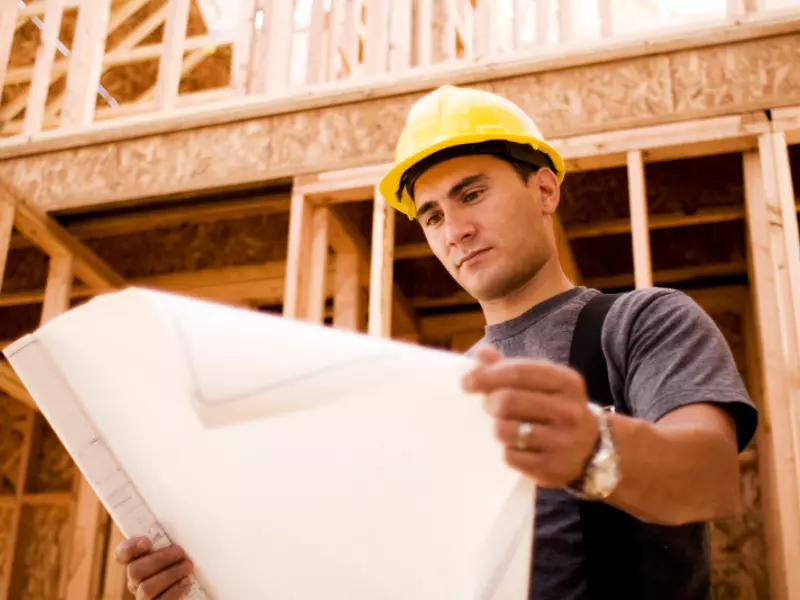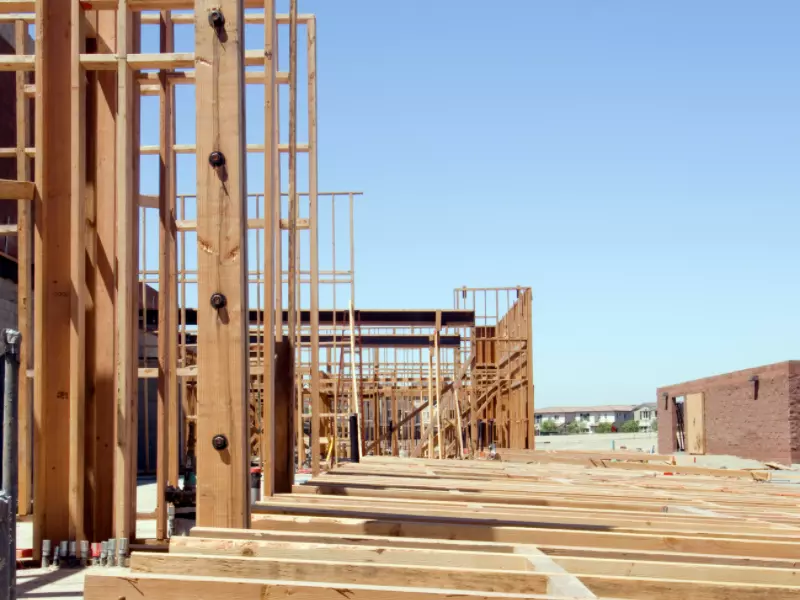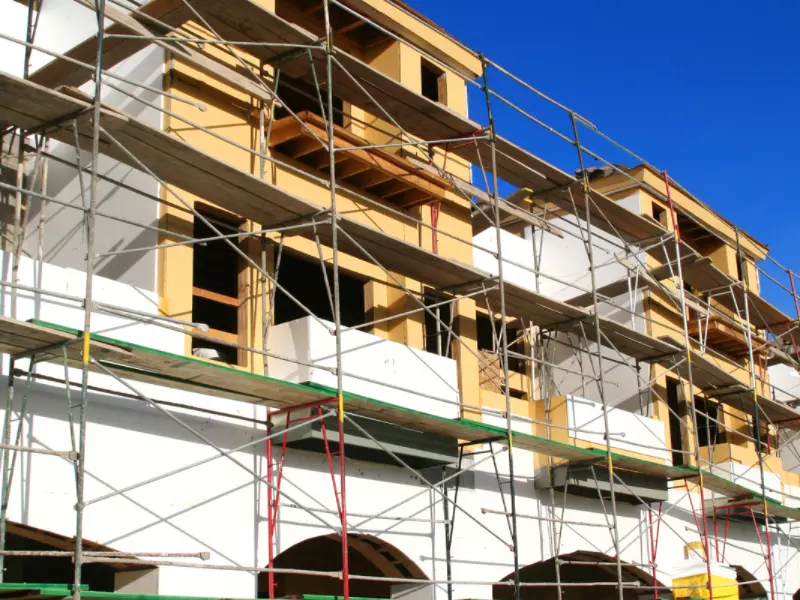
The Commercial Construction Industry comprises buildings and other structures used for commercial purposes, including office buildings, warehouses, retail stores, institutional buildings such as schools and hospitals, and mixed-use commercial/residential buildings.
When compared to residential construction, commercial construction has its own unique set of challenges. To be successful, commercial construction contractors must have a deep understanding of the construction process as well as the business side of things.
What is a Commercial General Contractor
General contractors with experience in commercial construction are known as commercial contractors. In the United States, commercial contractors must be licensed to bid on and work on commercial construction projects. The American Institute of Contractors (AIC) defines a commercial contractor as “an entity that performs construction work and is engaged in the business of construction.” In other words, a commercial contractor is a professional who specializes in the construction of commercial buildings and other structures.
A general contractor (GC) can either be a construction company or an individual who is responsible for overseeing the construction site, materials, equipment, vendors, and contractors or subcontractors who work on the construction or remodeling project. The proverbial buck stops with them and they are ultimately responsible for the success or failure of the entire project.
What Does a Commercial Contractor Do?
Commercial contractors are responsible for managing and coordinating all aspects of commercial construction projects, from start to finish. This includes everything from pre-construction planning and design to post-construction cleanup and punch list completion. In addition, commercial contractors typically have a team of subcontractors working under them to complete specific tasks.
Commercial contractors must be able to effectively communicate with all members of the project team, including the client, architects, engineers, and other construction professionals. They must also be able to stay organized and on schedule, as commercial construction projects are often complex and time-sensitive.
Types of Commercial Contractors
There are two main types of commercial contractors: general contractors and specialty contractors.
General contractors are responsible for managing the entire construction project from start to finish. They typically have a team of subcontractors working under them to complete specific tasks.
Specialty contractors, on the other hand, only perform specific tasks related to their area of expertise. For example, a specialty contractor might be responsible for the installation of the HVAC system or the electrical work in a commercial building.
The Difference Between Commercial and Residential Contractors
Commercial contractors must have a deep understanding of the construction process as well as the business side of things. They must be able to effectively communicate with all members of the project team, including the client, architects, engineers, and other construction professionals. In addition, commercial contractors must be able to stay organized and on schedule, as commercial construction projects are often complex and time-sensitive.

The responsibilities of a commercial contractor can include:
-
Managing the whole construction project and development
-
Acquiring and managing materials & equipment
-
Communicating with other project managers, owners, and vendors
-
Logistics and reporting
-
Adhering to codes and zoning regulations
-
Complying with budget and timeline responsibilities
Residential contractors, on the other hand, do not typically need to have the same level of understanding of the construction process or the business side of things. They also don’t need to be as proficient in communication and organization, as residential construction projects are typically less complex and time-sensitive.
Types of Commercial Projects Done by a Commercial Contractor
A commercial contractor will have prior experience working on jobs like office buildings, restaurants, medical clinics, retail businesses, recreational places, and warehouses. Some commercial contractors specialize in a particular type of commercial construction, such as healthcare, retail, or hospitality. Others may specialize in a certain type of projects, such as new construction, renovation, or design-build, or only work on small projects, while others have the experience and capability to handle large, complex projects.

Choosing the Right Commercial Contractor for Your Project
When choosing a commercial contractor, it’s important to consider the type of project you’re working on, the size of the project, and your budget. Here are a few things to keep in mind before hiring a commercial contractor.
Research Local Commercial Contractors
The first step is to research local commercial contractors who have experience working on similar projects. This can be done a few different ways:
-
Contact local property management groups: These groups typically have a list of recommended commercial contractors that they’ve worked with in the past.
-
Search online: Many online directories list commercial contractors, such as the Better Business Bureau (BBB) or Angie’s List.
-
Find similar properties: Try to find similar properties in your area that have been recently renovated. You can then contact the property owners and ask who their commercial contractor was.
-
Get referrals: Ask family, friends, and business associates if they know of any reputable commercial contractors in the area.
Once you’ve compiled a list of potential contractors, you can start reaching out to them to get more information about their services.
Ask for Bids
The next step is to ask each of the commercial contractors you’re considering for a bid. When requesting a bid, be sure to give the contractor all the relevant details about the project, such as the project scope, timeline, budget, and your expectations. This will allow the contractor to provide you with an accurate estimate.
It’s important to note that the lowest bid isn’t always the best option, as it could indicate that the contractor is cutting corners. Instead, you should focus on finding a contractor who provides a fair price for the quality of work they will provide.
Review Past Projects
Once you’ve received bids from each of the contractors you’re considering, it’s time to start narrowing down your options. One way to do this is by asking each contractor for a list of past projects they’ve worked on. This will allow you to see the type and size of projects they typically work on and get an idea of their experience level. It’s also a good idea to drive by or visit some of the contractor’s past projects, if possible. This will give you a first-hand look at the quality of their workmanship.
Check Their References
Another way to vet commercial contractors is by checking their references. When speaking with a contractor’s references, be sure to ask about the quality of work, if the project was completed on time and within budget, and if any issues arose during the project. It’s also a good idea to check online reviews, as they can provide helpful insights that you may not get from speaking with references.
Get Everything in Writing
Once you’ve selected a commercial contractor, it’s important to get everything in writing before work begins. This includes the project scope, timeline, budget, and any other details that have been agreed upon. Having everything in writing will help ensure that both you and the contractor are on the same page and help avoid any misunderstandings down the road.
Conclusion
By following these tips, you can be sure to find a reputable commercial contractor who will provide you with the quality work you need to complete your project.
